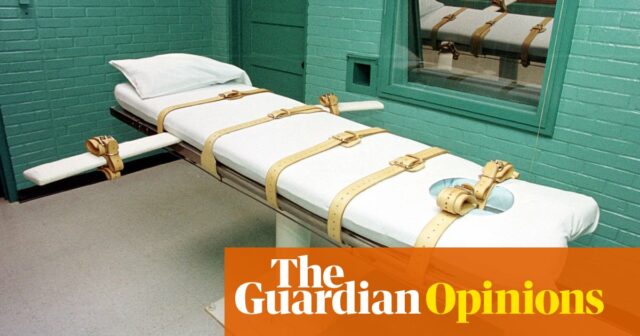The good news: Zimbabwe has just banned the death penalty. While it should remove an exemption clause, which might allow for capital punishment’s return were a state of emergency to be declared, the decision is another welcome step in the global journey towards abolition: 113 states have now banned executions.
The bad news is that fewer countries have been killing more people in the last few years. Last May, Amnesty International recorded 1,153 executions in 2023, a 31% increase from the previous year and the highest level for almost a decade. (The figure is an underestimate since countries including China, believed to be the world’s largest executioner, do not publish data on the death penalty.) There was no letup in 2024. Iran reportedly executed more than 900 people. Saudi Arabia is believed to have killed another 330, compared with 172 in 2023.
In the US, the toll was stable. But while more states have abolished capital punishment over recent years, there is a renewed push for executions in retentionist states. Three – Utah, South Carolina and Indiana – resumed killings last year after more than a decade.
Joe Biden’s decision to commute the sentences of 37 men under federal death sentences in December was welcome. He should have sent a still clearer moral message by doing the same for the remaining three, who committed terrorist or hate-motivated mass murder.
But the spur to his action was clear. Thirteen federal prisoners were executed in the first term of Donald Trump, a death penalty zealot – more than under the previous 10 presidents combined. They included executions carried out against the wishes of prosecutors and victims. A new administration cannot undo the commutations, and the lengthy appeals process ensures that the remaining trio will not be executed on Mr Trump’s watch. But he has vowed to “vigorously pursue the death penalty” and called for the execution of everyone selling drugs. And state death sentences are vastly more common than federal: the Death Penalty Information Center says that about 2,250 prisoners are on death row.
In his last term, Mr Trump appointed federal and supreme court judges who have ensured that the default is now to refuse appeals instead of taking them. Above all, he has embedded and intensified a political culture that pursues executions with increasing ruthlessness. States are not only more aggressive in seeking and implementing death sentences, but are turning to crueller methods including nitrogen gas – banned by veterinarians for use on most mammals across Europe and the US.
Those killed are vastly more likely to be poor and to be people of colour; many have intellectual disabilities or histories of severe childhood abuse. In a startling number of cases there are serious doubts about their convictions. Missouri killed Marcellus Williams in September against the opposition of the victim’s family, jurors and even the office that prosecuted him. DNA traces from the scene could not be linked to Mr Williams.
That case, like others, has sparked a surprising backlash even among Republicans who back the death penalty. And, while the majority of Americans still support capital punishment, for the first time most young Americans oppose it – with support falling slightly among young Republicans too. That should give heart to abolitionists in the US and globally. While the blood-hungry may seem to be in the ascendant, there is more reason than ever to push for an end to state-mandated murder.






